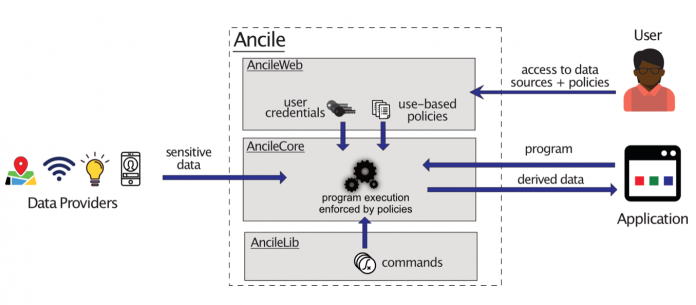A team of Cornell University researchers has developed and tested a platform, Ancile, that allows users to set restrictions on what kind of data they’ll release, and to whom.
“A lot of data is being collected about us, and we don’t have agency in deciding how this data is used,” said Nate Foster, associate professor of computer science at Cornell University and principal investigator for the Ancile project, in a statement.
“The ecosystem around all this additional data has gotten really rich and complicated,” Foster said. “So we were interested in developing a systems infrastructure that would let us specify and enforce policies from the individuals’ perspective – to sort of invert the control.”
This research also offers insight into how contact-tracing apps might protect people from COVID-19 without sacrificing individual privacy.
Passively generated data, such as location, is culled via smartphones’ network connections, as opposed to data shared actively through social media posts. Passive data is increasingly being collected and shared by a wide range of third-party applications, from smart building apps that adjust heating and cooling based on how many people are in a room to marketers amassing information on eating and shopping habit.
The team developed location-based apps to demonstrate what’s known as use-based privacy, which associates data with policies that authorize certain uses, without allowing unrestricted access.
The four apps they developed and tested, each of which addressed a specific privacy challenge, were:
- BookNearMe, to reserve a meeting room based on a user’s current location, but with location data blurred;
- RoamingOfficeHours, designed for instructors who want to hold regular office hours at irregular locations, without revealing users’ locations outside of office hours or when they’re not on campus;
- GroupStudy, to help small groups collaborate in person while hiding all information except whether a quorum of the group is present at the same location; and
- LocationPredictor, which uses machine learning to predict users’ next location based on where they are, while preventing location traces from being leaked or used for any purpose beyond the prediction model.
The research was supported by the National Science Foundation.
[Image courtesy: Cornell University]
